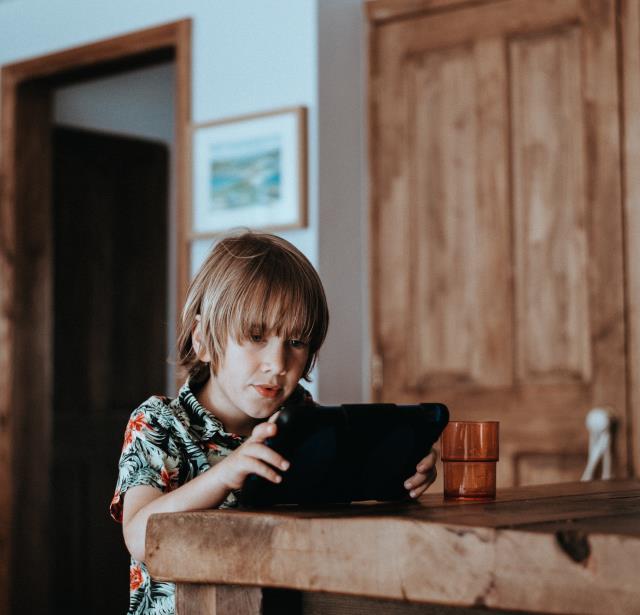As the school holidays begin, how to manage kids’ screen time is front-of-mind for many families across the country. Understanding the challenges, experts from the Triple P – Positive Parenting Program have a few simple strategies to create a healthy balance over the festive season and beyond.
Heightened screen time has become increasingly normal for young children and teenagers, with a new research review showing a 52 per cent spike in children’s screen time between 2020 and 2022. According to the Australian Institute of Family Studies (AIFS), most Australian children spend more time on screens than is recommended.
The Gonski Institute for Education’s report Growing Up Digital Australia Phase 2 also revealed that more than 4 in 5 children own a screen-based device and 65 per cent of parents agreed that ‘negotiating digital technologies use causes conflicts in our home’.
Author of Teen Triple P and Triple P International’s Head of Training, Associate Professor Alan Ralph, said that excess screen time can impact young developing brains.
“The experiences that children and teens have each and every day, creates important learning and new neural pathways,” Dr Ralph said.
“Excessive screen time not only leads to sleep disturbance and lack of physical activity, but also a potential decline in critical thinking skills – this can happen in adults as well as children and teenagers.”
With these challenges in mind, Triple P is offering up their top tips on a positive approach to screen time to avoid conflict and build a happy household during the school holidays.
It’s a team event!
Managing screen time includes the whole family. Kids pay attention to what their parents or carers say and do, so by modelling positive behaviours like limiting the time we ourselves spend on devices, conflict and resistance are less likely to occur when you ask your child to put down the screen and will also help them to feel included and represented.
Set a screen time schedule
Research suggests that children under 5 should have a maximum of 1 hour, and 5-17-year-olds should have a maximum of 2 hours of recreational screen time daily. Try scheduling screen time so the expectations are clear about when and where it is and is not OK to use screens – like during family meals or the critical hour before bedtime.
Swap screen time for other activities
The easiest way to reduce screen time is by replacing the time you would normally spend on a device with something else like physical activity or time outside, so your child can engage their brain in different and new ways whilst also spending quality time as a family. This will also help increase everyone’s mood and energy levels, so it’s a win-win!
Keep the conversation open and honest
Many people, regardless of age, feel the need to turn to screens for their socialisation, so cutting this form of communication out without constructive conversations as to the ‘why’ can lead to conflict within families – especially in the holiday period when children may not be seeing their friends every day. Have open and honest conversations with your child or teen, so they don’t feel blindsided or unsupported in their feelings, remembering that change can be hard and overwhelming.
There’s no quick fix!
The holiday season presents itself with many challenges and tackling heightened screen time is just one more to add to the list. It’s OK not to get it perfect from the start, so try looking at it as an ongoing learning opportunity for the entire family rather than a quick fix – this will help reduce the stress associated with any changes you make. Praise your child on what they have achieved, rather than what they have not. Change takes trial, error, and time.
“These tips are not a one size fits all solution; they are interchangeable to suit your family’s needs. If you are overwhelmed or seeking extra support, Triple P has a variety of free online programs available that may be of assistance,” Dr Ralph said.
Delivery of the Triple P – Positive Parenting Program to parents and carers of children in Australia is supported by funding from the Australian Government Department of Health and Aged Care under the Parenting Education and Support Program.
Parents and carers can access free, easy-to-use, online parenting support 24/7 at www.triplep-parenting.net.au







